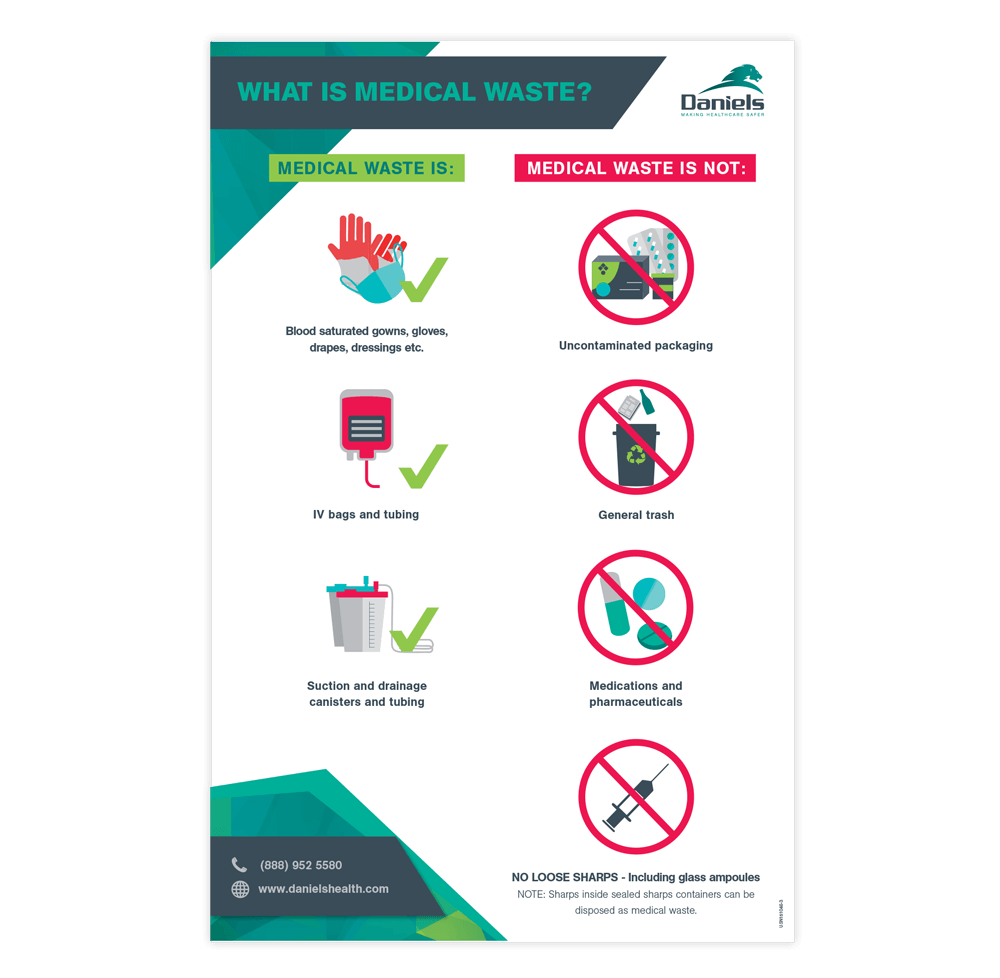Specialist Medical Waste Disposal Services: Taking Care Of Biohazards
Wiki Article
Liable Solutions: Recognizing Medical Waste Disposal Solutions
In the realm of medical care, the correct disposal of medical waste is a vital aspect that demands mindful factor to consider. As medical care facilities produce numerous types of waste that need specific handling, understanding the subtleties of clinical waste disposal services is critical.Importance of Appropriate Medical Waste Disposal
Correct clinical waste disposal is essential in preserving a secure and hygienic atmosphere within medical care centers. In medical care settings, various types of waste are generated daily, consisting of infectious materials, sharps, ended drugs, and chemical compounds.

Types of Medical Waste
Within medical care centers, a diverse range of waste products categorized as clinical waste is created, each calling for details handling and disposal approaches. Clinical waste can be categorized into several types based upon its qualities and possible risks. Transmittable waste, such as used needles, swabs, and societies, positions a substantial risk of spreading out infections and need to be thoroughly dealt with to stop any prospective injury. Contaminated materials includes chemicals, drugs, and specific products that might be reactive or harmful. These products need specialized disposal techniques to decrease environmental impact and make sure safety and security. Pathological waste, which includes cells, body organs, and body components, necessitates correct disposal to value the self-respect of the departed and avoid any type of biohazards. Pharmaceutical waste, like run out medicines and chemotherapy drugs, need to be disposed of appropriately to protect against misuse or environmental contamination. Understanding the numerous types of medical waste is crucial for health care centers to implement efficient waste administration methods and shield public health and wellness and the environment (Medical Waste Disposal Services).Laws and Conformity
Healthcare centers should comply with stringent regulations regarding the handling and disposal of medical waste to guarantee conformity with lawful demands and safeguard public wellness. These laws are implemented to stop the spread of infections, shield the atmosphere, and keep the safety and security of health care workers and the general public. Various regulative bodies, such as the Epa (EPA), the Occupational Safety And Security and Health Management (OSHA), and the Department of Transport (DOT), have certain guidelines that healthcare facilities should comply with.To comply with these regulations, medical care centers have to effectively set apart, store, transport, and dispose of various kinds of clinical waste. This includes sharps waste, contagious waste, unsafe waste, and pharmaceutical waste, each needing details handling procedures. Facilities has to Home Page also preserve exact documents of waste generation and disposal to show compliance throughout inspections.
Non-compliance with medical waste regulations can cause severe fines, penalties, and damages to the facility's reputation. Consequently, it is vital for healthcare facilities to remain notified concerning the most recent regulations and carry out robust conformity steps to shield public wellness and the setting.
Benefits of Expert Disposal Providers
Involving professional medical waste disposal services provides healthcare facilities a reputable and effective remedy for managing hazardous products. By outsourcing this important task to specialists, medical care centers can guarantee compliance with regulations while focusing on supplying high quality care to patients. One of the crucial advantages of specialist disposal solutions is the proficiency they bring to the table. These solutions utilize trained specialists who are fluent in dealing with different kinds of medical waste, guaranteeing proper partition, disposal, product packaging, and transport.In addition, professional disposal services make use of modern equipment and follow industry best practices to decrease environmental impact and reduce the risk of contamination. This not just advertises a safer workplace for health care team yet additionally adds to general public wellness and security. Furthermore, outsourcing medical waste disposal can cause cost savings in the future by eliminating the demand for internal administration and disposal systems.
Sustainable Practices in Healthcare

One key lasting practice in health care is waste reduction. By implementing methods to reduce unneeded packaging, single-use items, and general waste generation, medical care facilities can significantly lower the amount of waste sent to land fills or incineration. Additionally, recycling programs for products like plastic, paper, and glass can further decrease the environmental influence of healthcare operations.

Conclusion
To conclude, correct clinical waste disposal is important in maintaining a healthy and safe environment for both healthcare workers and the public. Recognizing the various kinds of clinical waste, complying with policies and compliance criteria, and utilizing expert disposal services are essential actions in liable waste management. By taking on sustainable practices in medical care centers, we can minimize environmental influence and guarantee the wellness of all people associated with the healthcare sector.As healthcare centers produce numerous types of waste that require specialized handling, recognizing the nuances of clinical waste disposal services is vital.Within health care facilities, a diverse selection of waste products identified as medical waste is created, each requiring details handling and disposal approaches. Comprehending the numerous types of medical waste is vital for medical care facilities to apply efficient waste monitoring methods and safeguard public health and wellness and the environment.
By applying methods to reduce unnecessary packaging, single-use things, and total waste generation, healthcare facilities can significantly decrease the quantity of waste sent to why not find out more garbage dumps or incineration. Understanding the different kinds of clinical waste, following guidelines and conformity standards, and making use of professional disposal services are crucial steps in accountable waste management.
Report this wiki page